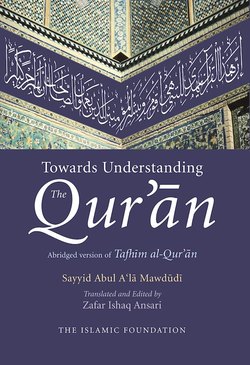Читать книгу Towards Understanding the Qur'an - Sayyid Abul A'la Mawdudi - Страница 280
На сайте Литреса книга снята с продажи.
ОглавлениеAl-Ma’idah 5: 48
and those who do not judge by what Allah has revealed are the transgressors.36
(48) Then We revealed the Book to you, (O Muhammad), with Truth, confirming what- ever of the Book was revealed before, and protecting and guarding over it.37 ▶
36 Here three verdicts are issued against those who do not judge in accordance with the Law revealed by God. The first is that they are kafir (unbelievers); the second, that they are zalim (wrong-doers); and the third, that they are fasiq (transgressors). This clearly means that anyone who, in disregard of God’s commandments and of the laws revealed by Him, pronounces judgements according to man-made laws – whether made by himself or by others – is an unbeliever, a wrong-doer and a transgressor. A man who is convinced that the injunctions of God are right but makes judgements contrary to them in practice is not an unbeliever in the sense that he ceases to be a member of the Islamic community, but he is guilty of adulterating his faith by blending it with kufr, zulm and fisq. In the same manner, those who deviate from the injunctions of God in all matters are unbelievers, wrong-doers and transgressors. For those who are obedient in some respects and disobedient in others, the blending of faith and submission to God with the opposite attributes of unbelief, wrong-doing and transgression in their lives will be exactly in proportion to the mixture of their obedience to, and their deviation from, God’s commands.
37 This points to a fact of major significance. It could also have been said that the Qur’an confirms all those parts of the earlier Scriptures which are still extant in their true and original form. But the sense has been conveyed by employing the word “the Book” rather than “the previous Books”. This expression indicates that the Qur’an and all those Books sent down by God at various times and in different languages in reality constitute one and the same Book. Their Author is one and the same; their aim and purpose are the same; their teaching is the same; and the knowledge which they seek to impart to mankind is the same. The difference between these Books lies in their modes of expression, and this was necessarily so since they were addressed to different audiences. To say that the Qur’an is muhaymin on al-kitab means that it preserves all the true teachings of the earlier books of Divine provenance; that it has secured them from loss.
231
